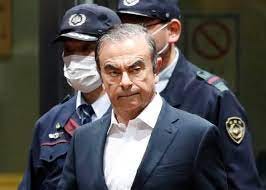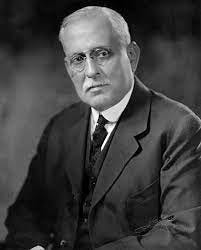CAN FUGITIVE FRAUDSTERS ESCAPE PROSECUTION?
International extradition law is a bog of uncertainty
The wicked flee when no man pursueth, but the righteous are bold as a lion
Proverbs 28:1
There are hard times coming, whether you call it a bear market, recession, panic or crash. When this is clear to the public, it will also be apparent that many people will be holding securities or contracts representing promises of future income that cannot be fulfilled. Rather than enjoying a comfortable retirement or privileged life, they will be poor, or less prosperous than they thought they would be.
Those people will want revenge against those who sold them those promises. Will they get it?
Depends. If the fraudsters have fled the country for foreign parts— which has happened pretty often in the past —-the defrauded, and the prosecutors seeking retribution on their behalf, will have to induce a foreign government to return the alleged criminals, by force if necessary, for trial and punishment.
That process is called extradition, and as one prominent New York criminal defense lawyer told me, “that is just a bog of uncertainty. There is such inconsistency in how, or whether, extraditions are carried out.”
The extradition of suspected or convicted criminals from one country to another is governed by international treaties and their enforcement by national justice systems. Typically, a “requesting state” that wants a fugitive will ask the prospective “sending state” to arrest the individual and surrender them for transport back to the prosecutors.
This has come up after previous financial crises in the US. After the 1929 Wall Street Crash, Samuel Insull’s huge and highly leveraged electric utility holding company system was found to be insolvent. Hundreds of thousands of shareholders in his companies had the value of their equity wiped out. The public bayed for justice, and Insull fled on his yacht to Europe, pursued by journalists and lawyers. American prosecutors sought unsuccessfully to extradite Insull from France and Greece. Eventually, Turkey agreed to give him up to US authorities in 1934.
He was tried in the US on antitrust and mail fraud charges. Despite his flight from prosecution, Insull was found not guilty of the charges. Nevertheless, he had lost his apparent pre-Crash fortune, and died completely broke after returning to Paris in 1938. Today, despite his financial failure, Insull is seen as a pioneer of the interstate high voltage grid and the regulated-monopoly model for electric utilities.
After Insull’s vindication in court, the theatrics of his flight and the public uproar encouraged US authorities to gradually negotiate more comprehensive international procedures for the apprehension of white-collar fugitives. They also put in place the Public Utilities Holding Company Act of 1935 to discourage the formation of over-leveraged monopolies.
For example, Julian Assange, an Australian national wanted by the US on espionage charges, was arrested by the UK at the request of the Americans, but up to now been able to avoid extradition to what is likely to be an unforgiving US justice system. Human rights advocates have made the case that Assange, who helped publicly expose secrets of the the US intelligence system, will be subject to inhumane treatment in the US prison system.
And quite a few countries are unwilling to arrest and deliver their own citizens or legal residents to the foreign justice systems. Despite a handful of well publicized extraditions of cartel bosses from Mexico, its authorities are generally unwilling to extradite their fellow citizens to the US. Fugitive Americans, though, will usually be returned if the US is insistent.
The reluctance to extradite can even apply to “dual nationals” who are also citizens of the requesting state. Frequently, a fugitive dual national can avoid extradition if they were citizens of the sending country prior to the time of the alleged crimes.
And if a fugitive is willing to settle in an anarchic territory, they may well avoid extradition. Carlos Ghosn, the former CEO of the Renault-Nissan Alliance, famously escaped in 2019 from Japanese prosecutors who wanted to imprison him for unjustly enriching himself by tens of millions of dollars at the expense of his employers. He fled by private jet under cover of night to Lebanon, where he lives to this day as a sort of luxury fugitive.
According to local law, Ghosn cannot be extradited for his alleged crimes, since he inherited Lebanese nationality, and Japan does not have an extradition treaty with Lebanon. Now, however, France, where he is also a national, is seeking to extradite him for prosecution for some of the same charges.
My guess is that Ghosn will continue to be able to live in “freedom” in Lebanon. But then he’s still in Lebanon, where there’s a collapsed banking system, endemic clan and religious violence, flickering power and chronic water shortages. The court system cannot be expected to reliably enforce the law against him…but then neither will it protect his rights. He is going to have an expensive, unsafe, and circumscribed existence. Better than a Japanese prison? For a while, perhaps. But Ghosn will never have peace.
The Ghosn case was a bit unusual in that Japan has not, for many decades, believed that other parts of the world should live according to Japanese law. The United States, on the other hand, has for a long time taken the view that its laws and standards apply to non-US nationals.
That’s pretty expansive, but then so are the US armed forces, along with its monetary system and intelligence services, not to mention its imposition of the English language as the world’s medium of communication. Therefore, the American authorities can often impose their interpretation of the law.
In the aftermath of the next financial crash, the real barrier to the prosecution of exposed white-collar criminals will not be limits on the extradition powers of the US, the UK or other developed countries, but the logistical effort required by their justice systems’ bureaucracies. Identifying criminals and locking them up is a lot of trouble, and public opinion as well as official honor will probably be satisfied after a few well publicized prosecutions followed by harsh sentencing.
Some white-collar criminals may find ways to cash out their winnings and flee to Lebanon, Iran, or other places uninterested in US official opinion. But most will take their chances with their local justice system, particularly if they’re unfamiliar with other countries and languages.
Successful flight and avoidance of extradition requires systematic thought and preparation. And as one London criminal defense lawyer remarked to me, “I’ve been practicing law a long time, and I have yet to meet a criminal mastermind.”





The Return of the King...Welcome back, John.
Prevention is always better